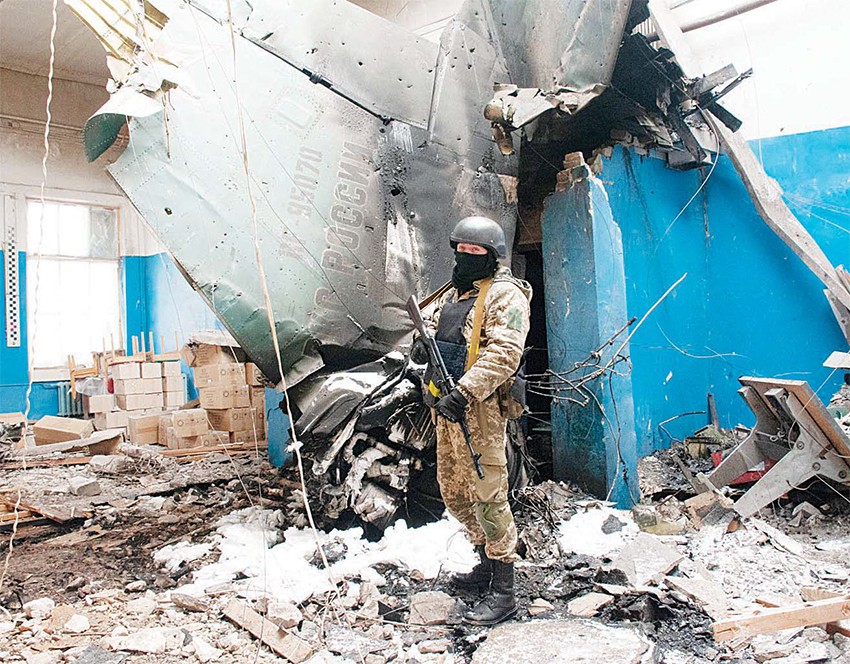09/03/2022
09/03/2022
WARSAW, March 9, (AP): The Pentagon has rejected Poland’s surprise announcement that it would give the United States its MiG-29 fighter jets for use by Ukraine, a rare display of disharmony by NATO allies seeking to boost Ukrainian fighters while avoiding getting caught up in a wider war with Russia. Pentagon spokesman John Kirby said Poland’s declaration that it intended to deliver the 28 jets to the U.S. Ramstein Air Base in Germany raised the concerning prospect of warplanes departing from a U.S. and NATO base to fly into airspace contested with Russia in the Ukraine conflict. “We will continue to consult with Poland and our other NATO allies about this issue and the difficult logistical challenges it presents, but we do not believe Poland’s proposal is a tenable one,” Kirby said in a statement.

The proposed gift of more warplanes would be a morale booster for Ukrainians under pounding Russian assault for nearly two weeks. But it also raises the risk of the war expanding beyond Ukraine. Russia has declared that supporting Ukraine’s air force would be tantamount to joining the war, and could spur retaliation. White House officials were blindsided by the Polish announcement on the MiGs. The proposal did not come up during talks with Secretary of State Antony Blinken when he was recently in Poland, according to a U.S. official familiar with the talks.
The U.S. official, who spoke on the condition of anonymity, said White House officials did not think the proposal would easily solve the logistical challenges of providing aircraft to Ukraine. U.S. Undersecretary of State Victoria Nuland told lawmakers at a hearing on the Ukraine crisis Tuesday she learned of Poland’s plans only while driving to the hearing. “To my knowledge, it wasn’t pre-consulted with us,” Nuland told senators. Ukraine has been pleading for more warplanes as it resists mightier Russian forces. Washington has been looking at a proposal under which Poland would supply Ukraine with the MiG-29s and in turn receive American F-16s to make up for their loss. Ukrainian pilots are trained to fly the Sovietera fighter jets. The Polish Foreign Ministry announced the plan in a statement, which said the jets would be delivered to Ramstein free of charge. “At the same time, Poland requests the United States to provide us with used aircraft with corresponding operational capabilities,” it said.
The Polish government also appealed to other owners of MIG-29 jets to follow suit. Former Soviet-bloc NATO members Bulgaria and Slovakia also still have Soviet-made fighter jets in their air forces. Vice President Kamala Harris’ trip to Warsaw to thank Poland for taking in hundreds of thousands of Ukrainians fleeing Russia’s invasion took an unexpected turn before she even left Washington. She’ll be parachuting into the middle of unexpected diplomatic turbulence over fighter jets. The Polish government on Tuesday came out with a plan to transfer its Russian-made fighter planes to a U.S. military base in Germany, with the expectation that the planes would then be handed over to Ukrainian pilots trying to fend off Russian forces. In turn, the U.S. would supply Poland with U.S.- made jets with “corresponding capabilities.”
Harris is slated to meet on Thursday with Polish President Andrzej Sebastian Duda and Prime Minister Mateusz Morawiecki as well as with Ukrainians who have fled to Poland. She’ll also meet with Canadian Prime Minister Justin Trudeau while in Warsaw. Trudeau has been in Europe this week meeting with Ukraine allies. Harris will travel on Friday to Bucharest, where she’s to meet Romanian President Klaus Iohannis. The vice president also is expected to use the meetings in Poland and Romania to underscore the U.S. commitment to the NATO alliance and the need for continued humanitarian and military assistance for Ukraine. She’ll also highlight the need for allies to continue their close coordination moving forward.


